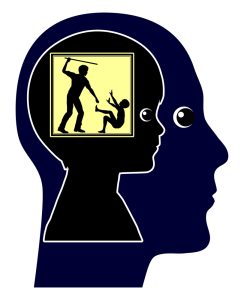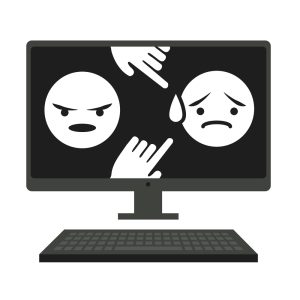In counseling, especially Trauma Informed Care counseling, counselors will not always discuss issues of the past. Trauma from the past can scar emotionally and create many present issues, but many crisis situations exist also in the present. Counselors or social workers or pastoral caregivers may discover clients that are in distress due to day to day threats and dangers. This creates a difficult situation for counselors to discern legal and ethical obligations to protect someone from harm versus situations that while potential dangerous are not imminent and require the empathetic and therapeutic relationship to resolve. New counselors have especially deeper concerns in this murky waters, while more seasoned counselors have a better understanding when and how to report, hospitalize or walk with a person in crisis that is facing danger or harm. In this blog article, we will review various situations and how to deal with them, as well as important concepts in the therapeutic relationship that can help respect the autonomy and dignity of the person while also protecting the person.

Please also review AIHCP’s multiple certification programs in mental and behavioral health, including programs in Crisis Intervention, Grief Counseling, Christian Counseling and Trauma Informed Care.
The Importance of the Therapeutic Relationship in Resolving Crisis
Cochran points out that wrong decisions in counseling can have drastic consequences in helping those in crisis. This means that following ethical and legal protocols are key, but assessing imminent danger and potential danger is a key skill. Furthermore, even if as a counselor, one prescribes and writes down a plan for one to follow, there is never guarantee a client will listen. Many refuse to listen, or if feel coerced into doing something, fail to completely fulfill it because they do not believe in the course of action (2021, p. 222). This is where not only discernment and assessment come into play but also understanding the dynamic role of the therapeutic relationship and how it can help a client in potential danger or even in some cases, imminent danger, a way to properly find safety without violating the person’s autonomy. It is far more purposeful to help a person not only escape crisis and danger but understand how to progress and continue to heal and find better ways to to avoid it in the future.
Within the therapeutic relationship, Cochran emphasizes instilling within the client self responsibility that preserves dignity and integrity of the client with less restrictive interventions (2021, p. 222). Why? Simply because this allows the person to own the situation, understand the danger, be proactive in finding safety and share in the decision making process for finding that safety or care. If this means convincing someone who is suicidal to admit oneself to a psych unit at a hospital, or help a person report an abuser, it is also best to guide and help the client make decisions with the counselor so the client can be fully on board. When clients doubt, or question, or feel forced, they many times abandon the course of action and this is why the therapeutic relationship is so critical in helping clients escape danger. Of course, unfortunately, there are cases where the client refuses to listen to reason, or refuses to report a crime, or puts oneself in harms way. This is when a counselor reluctantly must obey legal obligations as a licensed counselor to protect a client. Obviously these situations involve imminent danger, criminal activity, and a client unwilling to work with the counselor in a plan of action. In addition to trying to utilize the counseling relationship to foster the best plans, it is also critical for the counselor to employ unconditional positive regard for the client and not just merely hear the situation, but to accept the person and the feelings behind it. While one may be expressing self harm, or threat of being hurt by others, or hurting others, the counselor needs to employ empathy to help the person not only choose the best option but to also help the person heal. Instead of judging, the counselor needs to hear the pain to better help the person correct the story (Cochran, 2021, p. 223).
Cochran points out that these situations of imminent threat to a client are some of the most difficult ones for counselors (2021, p. 249). When dealing with suicidal clients, or domestic abuse victims, leave any counselors, much less new counselors feel a strong stress level when dealing with life and death. Cochran points out that one of the biggest fears is never being 100 percent sure. If a client completes a non-self harm agreement, a counselor can be left with a nervous feeling if the client will keep his or her word and not harm oneself. In addition, Cochran points out that many times, counselors can be preoccupied with liability. Rightfully so, liability is a key concern, and when necessary, legal actions need taken, but to focus solely on liability at the expense of the over-all situation and maintaining focus on the client, then larger errors can occur in the handling of a situation (2021, p. 252). In addition to rookie jitters, lack of self confidence or experience, many new counselors sometimes also fear coordination with other counselors and professionals. They may fear this may broach confidentiality but in many agencies, clients are seen by numerous other professionals and the seal of confidentiality is within the staff. In addition, many times, the discussions of imminent danger can be discussed with family, or other professionals due to legal laws (2021, p. 253-254). If within the therapeutic relationship, family or other professional’s opinions can be inserted into the session without taking control away from the client. These situations since they are so life altering sometimes need other minds and ideas and experiences to help provide the best outcome for the client. When the client is working with the team and following a plan, instead of fighting against it and being forced into something, then these are the best situations. Unfortunately sometimes, not all situations are ideal nor the existence of a therapeutic relationship’s existence.
Situations of Crisis that Can be Potentially or Imminent in Threat or Harm
Most situations of crisis that pose potential to imminent levels of harm include suicidal ideation, domestic violence and sexual abuse. It is always best to utilize a therapeutic relationship in fostering the best play of action as opposed to arbitrary decisions, albeit sometimes when clients refuse to accept themselves, drastic decisions that may not fix the problem long term, but at least protect the client short term must be applied.

In all situations, it is best to help clients make the plan and be part of it. Cochran points out that it may be tempting to take over and make it your plan for the client’s safety, but a counselor wants a client to have personal investment and ownership of a plan (2021, p. 225). In planning, Cochran also calls for these situations to specifics in each plans that looks at all pitfalls or “what ifs” to help a client navigate the dangers of the crisis. In addition, when a clients hint or speculate about things that may seem harmful, it is the duty of the counselor to error on the side of caution to broach the subject when necessary and even more so, say the words of “suicide”, or “abuse” if necessary to bring to the light the situation. If a counselor feels a dangerous situation was implied, it should be saved for the end of the session to counter, but within the next few minutes to redirect to what was said to have a clear understanding of the danger the client is facing (2021, p. 226).
The Situation of Suicidal Threats
Suicide is nothing to ignore. Many times, individuals dismiss these threats as attention seeking, or merely a state of momentary sadness. While sometimes they may be benign statements, counselors, nor anyone should ever under estimate a possible suicidal threat. Instead each needs to be taken seriously and with compassion and without judgement. Each statement needs confronted and completely understood to see if it is merely a statement, or a wish that has potential or imminent harm intended. Suicide assessment charts are common place in any counseling office. These guides help counselors assess and discern situations but also help counselors better work with those who feel this way.
Counselors when broaching the subject of suicide, need to identify a plan of the person. This plan entails why, when and how a person would kill oneself. By discussing the details of each plan, counselors and trauma informed care specialists can better ascertain if the risk is minimal and requires therapeutic counseling or if it does pose a true and valid threat. If it is a legitimate threat or desire, counselors need to determine the lethality of the plan. The how of one wishes to kill oneself can be very revealing. If one merely hopes to crash into a tree, or punch oneself, as opposed to shooting oneself, overdosing, or leaving a car running in a garage, then plans that involve less likely hood of death can be categorized as a lower risk level. However, if more lethal methods are described, then the plan needs to be taken far more seriously. Compounding the seriousness and lethality of the threat, counselors need to address if the means to carry out a plan is possible. If a client owns a gun, or has a script that he or she could overdose on, then the level of imminent threat becomes a reality.
Counselors, however, can look for other clues to see the mindset of a client. Clients may casually state I would like to kill myself, but it may hurt my family too much (Cochran, 2021, 229), or may state what would my baby do at home? These types of clues are good ways to open the mind of the client to the counselor to better assess and determine. In addition to preventative factors, counselors should look for future orientation (Cochran, 2021, p. 229). If a client speaks of chores, events, or work schedules in the next coming weeks, then it is a good sign of no imminent threat, but if clients dismiss schedules, or events, or show no care these things, then a more imminent harm conclusion is warranted. Another closely related clue to imminent threat is switch or sudden change in emotion about life. If a client suddenly cares nothing about family, hobbies, or sports, or whatever interest that anchored to his or her reality, then this is a sign of danger that a counselor should take seriously (Cochran, 2021, p. 229). In addition, a counselor should question the client on previous attempts of suicide. Those with previous attempts pose a more serious threat to themselves. Also, a counselor should discuss drug and alcohol abuse and the role it plays on inhibitions in regards to a person questioning life and whether to take it or not.
Through therapeutic counseling, the relationship in these conversations needs to end with some type of non-self harm contract. The contract should include a time table of security, as well as persons to call if one feels sad or depressed or intrusive thoughts of harming oneself appear. With this contract is safety planning, where the counselor attempts to receive from the client a promise of no self harm at least between sessions, as well as a call list of individuals that can help, as well as a promise to avoid substances that can limit inhibitions to prevent suicide (Cochran, 2021, p. 231). One of the most important aspects of a plan is also removing any means that may exist. If a person has access to a gun, then their is a promise to remove it, and if necessary facilitated through a family member. If prescription medications are available, then the scripts are removed from the home or access of the person.
Some plans may not be able to be completed merely between the word of a counselor and client. Some plans may need temporary hospitalization, or family intervention. It is best that these plans are accepted by the client. Hospitalization is important for individuals who cannot promise their own safety or commit to a plan. It is good during this plan to discuss how the process will occur and the potential costs. It may be helpful to to guide a client to the best facility to meet his or her needs. It is also best to include family in this decision but also to not be afraid to ask for professional peer advice. If a client is a threat to him or herself and refuses these measures, then unfortunately, the short term safety of the patient outweighs the therapeutic alliance (Cochran, 2021, p. 237). It is always the best to have a client on board. Good counseling and good relationships foster the trust for a client to follow the suggestion of a counselor he or she perceives as genuine and trustworthy. Unfortunately, many in mental health may only see a client once or twice or in an emergency situation and may be forced making the tough but right decision on the spot. It is however important to at least try to work with the client and empathetically guide them instead of stripping the person of all autonomy without conversation and empathy and respect.
Domestic Violence and Sexual Abuse
A client who discloses sexual abuse or domestic violence poses a real ethical issue for some counselors. A counselor is ordered to report crimes of physical or sexual abuse. How it is reported is another thing. When joined together with the client in reporting physical abuse or sexual assault, a victim can retain autonomy and healing. A victim may have a difficult time reporting in confidence this horrific trauma and may have conflicting feelings for the perpetrator, or remain in intense fear, or have shame about the story becoming public. It is imperative to reflect these concerns with empathy and non-judgement but also reflect the imminent danger and legal responsibilities of the situation. In previous blogs, we have discussed the importance of safety, security and trust in trauma informed care and this is especially important here.

Situations that do not denote reporting that lack physical violence or sexual assault can be more tricky. There is definitely potential for harm and it may be imminent but has yet occurred. In cases of emotional and verbal abuse, a very careful plan must be construed that utilizes the strengths of the therapeutic relationship. Cochran points out that many relationships in crisis that carry emotional and verbal dysfunction may be unhappy but not necessarily imminent to harm (2021, p. 248). It is important for counselors to understand the underlying causes for the dysfunction, approach ways to reduce triggers by both parties, as well as ways to help them manage emotions. Counselors should also seek to understand the past history of violence, if any physical violence occurred in the past to help ascertain the situation and its lethality. Counselors may also suggest avoidance of high risk activities that lower inhibitions. The use of drugs and drinking can correlate with violence. Finally, whether, verbal or physical, anger in the home can be detrimental to children. Special considerations need to be discussed regarding what children hear and what they feel regarding the uneasy tension (Cochran, 2021, p. 249).
If a situation does not warrant reporting yet has potential or imminent possible harm scenarios, a plan needs developed that guarantees the safety of the client. Discussions on how to remove oneself from the situation, de-escalate, who to call, or where to possibly stay should all be highlighted. Counselors are there in the therapeutic relationship to discuss the possible hardships and issues that surround all decisions (Cochran, 2021, p. 249).
In some cases, the counselor may speaking with the offender. This may occur in solo sessions or couple counseling-The offender who admits to verbal or emotional abuse or to past incidents. In this therapeutic setting, the counselor is to display unconditional positive regard despite any disgust or disapproval. The point is this client or person has come for help. They may at first make excuses but through empathy and good counseling skills, a person can start to see what he or she is doing is wrong in the situation. This involves patience and no judgement to help facilitate the change necessary internally for the person to seek reform instead of being told to do something. The counselor can help these individuals identify their own triggers, as well as circumstances, or situations that affect them. The counselor can also identify if the client had been abused in the past and how to help the person heal and not pass on the same abuse. Plans can involve identifying triggers, avoiding substances, and seeking the necessary help that may be beyond individual counseling sessions (Cochran, 2021, p. 243).
Conclusion
Counseling is not always about past trauma or issues that do not pertain to present potential or imminent harm. Counselors need to understand their legal obligations when presented to report crimes or potential harm to a client or others, but they can also employ the therapeutic relationship which understands the pain of the individual and the distress of the entirety of the situation. Sometimes this involves helping the person come to the conclusion that direct help beyond counseling is required, other times it may involve a plan for non imminent or criminal threats to a person’s safety. The counselor in the therapeutic relationship manages the crisis with empathy but also respects the dignity and autonomy of the individual in coming to logical conclusions and safety plans that protect the individual and others. When a client works with a plan instead of being coerced, then healing is more possible. Unfortunately, some clients who are victims of crimes, or are a harm to themselves that refuse to work with a counselor, must be hospitalized, or the situation reported despite the pain it causes. These are difficult times for counselors, especially new counselors. Hence, it is important to employ a health therapeutic relationship when applicable, assess situations, consult with other professional peers and make the best decision for the welfare of the client. It is not an immediate assessment but one that is made with many considerations, facts, and complications considered for the best outcome that respects the law but also safety of a client.

Always remember though
“The American Psychological Association (APA) offers ethical guidance through its “Ethical Principles of Psychologists and Code of Conduct.” Under these principles, therapists can disclose information without client consent if deemed necessary to protect the client or others from harm. This authorization for disclosure also extends to situations where the client has given permission, or when required by law, such as when providing professional services, seeking consultation from other professionals, or obtaining payment for services.” (Deibel, 2024).
Trauma Informed Care Specialists, those in crisis counseling, and any licensed mental and behavioral health professional, as well as healthcare professional can face these situations and must have a clear understanding what to do but also have the skills necessary to facilitate health client interaction that leads to joint conclusions when possible.
Please also review AIHCP’s multiple healthcare certifications and see which ones best meet your academic and professional goals.
Resource
Cochran, J & Cochran, N. (2021). “The Heart of Counseling: Practical Counseling Skills Through Therapeutic Relationships” 3rd Ed. Routledge
Additional AIHCP Blogs
Suicide Assessment. Click here
Suicide Lethality. Click here
When Trauma Emerges in Counseling. Click here
Additional Resources
Health Information Privacy. US Department of Health and Human Services. Access here
Barsky, A. (2023). “Duty to Protect and the “Red Flag” Option”. Psychology Today. Access here
“Guidelines for working with clients when there is a risk of serious harm to others” APS. Click here
Diebel, A. (2024). “What is a Therapist’s ‘Duty to Warn’ and Why is it so Important?” Grow Therapy. Click here
























 Written by Mike Scott
Written by Mike Scott







